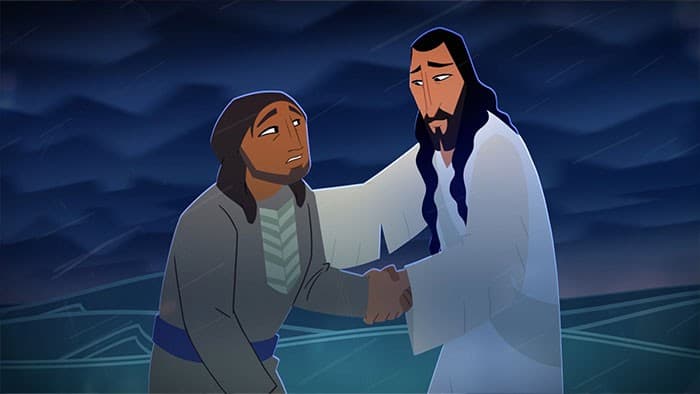The secret of Jesus Film Project® is heart language.
Did you know approximately 7,000 languages exist around the world? And even more intriguing is this fact: according to Ethnologue, “just 23 languages account for more than half the world’s population.”
Around the globe people use and adapt to common local trade languages in their day-to-day life-in school, at work or for other purposes. Even though it may not be their own, many can easily gather information and perform transactions in a regional trade language. And from a practical standpoint, speaking a well-known trade language allows people to connect in ways they otherwise wouldn’t.
Even so, we believe that it’s the heart language-the language learned at home from the earliest age-that holds the key to a person’s heart.
At Jesus Film Project we’re committed to reaching everyone, everywhere in their heart language, so people can have the opportunity to embrace Jesus as they hear Him speak their own language. That’s why since 1979 we’ve dubbed the JESUS film into more than 1,900 languages.
It’s why we’ve also gone to places like the mountain villages of Guatemala to record a heart-language version of Magdalena: Released From Shame for Kekchi language speakers. During the recording, a few villagers stopped our recording technicians to say “thank you for taking us into account.” Of course, we know it’s God who first “takes them into account.”
Our mission to reach people in their heart language brings us into partnership with the First Nations Version of the New Testament. Together we’ve produced a short series of films that we believe will reach North American Native People.
The heart language of North American Native People is a dialect of English that has evolved over many years. From roughly the 1880s to the 1970s the government and religious education institutions actively suppressed tribal languages, so many North American tribal languages were lost. It’s estimated that fewer than 10% of Native American people speak their tribal language.
In place of those languages, the Native American English dialect developed-particularly around storytelling and oral histories. This dialect uses specific phrases, naming conventions, tones and cadences that echo the tribal languages, but in English.
Author Terry M. Wildman translated the First Nations Version of the New Testament with the help of a council of First Nation believers. Crafted under the guidance of OneBook of Canada, a member of the Wycliffe Global Alliance, this translation will provide North American Native People with a Bible in the dialect of English that has become their heart language. This New Testament will be available in August 2021.
When Jesus Film® heard about this new translation, we wanted to give Native Americans a visual tool in their heart language too. In collaboration with our Native American partners, we created a collection of powerful short animated films called Retelling the Good Story, which shares the biblical accounts of Jesus feeding the five thousand and walking on water.
The series is directed by Dominic Corolla and features captivating animation inspired by Native American art.
When my husband and I served in Central Asia, we encountered local people who thought of Jesus as “the Russian God.” But when we brought them a film about Jesus in their local language, many of them began to realize that Jesus was not Russian, but that he spoke Uzbek or Kazakh or Tajik. To them, Russia had been the oppressor. Jesus–who they considered the God of the oppressor–held no appeal for them. They had never been curious or had any interest in Him until they heard Him speaking their language.
In much the same way, Jesus can seem like the “white man’s God” to many Native American people. But in prayerfully creating this animated short about Jesus using the First Nations Version of the Gospels, we are presenting Jesus as the God of all Nations-a God who knows these people intimately and even speaks their heart language.
We hope and pray many will embrace Jesus and His love through these animated films, and as a result, will become His followers.
Terry M. Wildman, who also serves as narrator and singer in the films, is of Ojibwe (Chippewa) and Yaqui ancestry. Terry is a published author, a Grammy-nominated recording artist, a songwriter, storyteller and public speaker. He has pastored churches in Michigan and Arizona. Terry previously served on Youth With a Mission (YWAM) staff and is now director of Spiritual Growth and Leadership Development for Native InterVarsity.
You can watch and share Retelling the Good Story on our YouTube channel and right here on jesusfilm.org. Plus, keep a look out for the First Nations Version of the New Testament, available on August 31.
